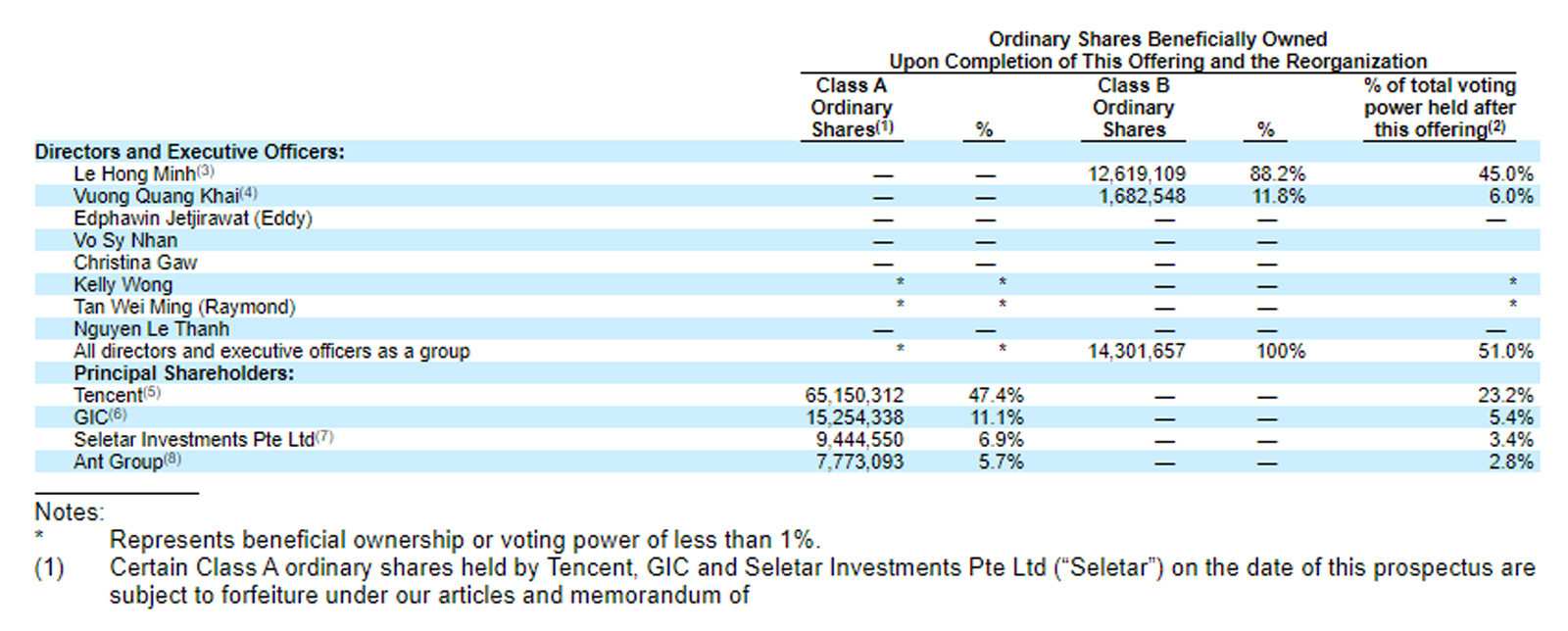Under the leadership of CEO Le Hong Minh, the company has seen tremendous growth in the technology sector, but it now grapples with substantial financial difficulties. With recent executive changes and ongoing investment in ambitious projects, the future of VNG and its founder remains uncertain.

VNG Corporation, formerly Vinagame, is a major player in Vietnam's technology scene and the owner of the widely used Zalo social network.
Founded and led by CEO Le Hong Minh, VNG has achieved notable success, particularly with its mobile messaging app, Zalo. However, recent developments reveal that the company is now facing considerable difficulties.
As of September 7, 2024, Kelly Wong, the Deputy CEO of VNG, has been appointed as the interim CEO, following the tenure of Le Hong Minh. The company has not specified Le Hong Minh's current role.
Under Le Hong Minh's leadership, VNG has made significant strides with Zalo, which has become one of Vietnam's leading messaging apps. Over the past decade, Zalo has amassed approximately 75 million active users and processes around 2 billion messages daily.
During the COVID-19 pandemic, Zalo played a crucial role in disseminating urgent health notifications and was chosen by the Ministry of Health for vaccine rollout communications.
Despite these achievements, VNG has struggled with financial losses. After peaking at a record price of 1.56 million VND per share on February 16, 2023, VNG’s stock has been on a downward trajectory. On September 6, 2024, VNG's stock price dropped nearly 11% to 459,000 VND per share.
The company has faced a series of financial setbacks, with a net loss of approximately 489 billion VND in the second quarter of 2024, marking its eleventh consecutive quarter of losses. High expenditures on advertising and strategic product investments have contributed to these ongoing financial difficulties.
VNG’s investments have also led to notable losses, including a complete write-off of 510 billion VND in Tiki Global. In the first half of 2024, VNG invested an additional 1,777 billion VND in Zion Corporation, which owns ZaloPay, increasing its stake to nearly 100%. This investment, along with others, has raised VNG’s long-term financial reserves from about 3,650 billion VND to 5,179 billion VND.
Currently, VNG’s market capitalization stands at approximately 13 trillion VND (nearly 520 million USD), a significant drop from its peak valuation of 2.3 billion USD.
Unfulfilled ambitions
Despite being a prominent tech giant in Vietnam, many of VNG's ambitious goals have not materialized. The company failed to reduce its losses in 2023 and did not achieve its goal of listing on the U.S. stock market. Although VNG had initially aimed to raise around 150 million USD through an IPO on Nasdaq, it later withdrew its application.
VNG Limited, the principal shareholder of VNG Corporation, had submitted a registration statement to the U.S. Securities and Exchange Commission (SEC) in August 2023, with plans to list on Nasdaq Global Select Market under the ticker VNG. Major Chinese tech companies Tencent and Ant Group, along with Singapore's GIC, hold substantial shares in VNG Limited.
The company has decided against proceeding with the IPO and has not provided further details on the rescheduling or reasons for the withdrawal.
For 2024, VNG has set ambitious revenue targets of 11,069 billion VND and a post-tax profit goal of 195 billion VND. However, it has experienced losses in both of the first two quarters of the year.
Unlike other tech giants like FPT, which has seen strong revenue and profit growth, VNG's strategy focuses on long-term investments in technology products that may not yield immediate returns but aim to drive significant change. Recent ventures include Zalo, ZaloPay, and VNG Data Center.
VNG is also rapidly adapting to trends in artificial intelligence (AI) through its partnership with Nvidia. However, the outcomes of these major projects and VNG’s grand ambitions remain to be seen.
Despite the current challenges, investors are hopeful that VNG will eventually achieve significant growth. The question remains whether VNG’s global ambitions will come to fruition amid ongoing domestic challenges.
Manh Ha